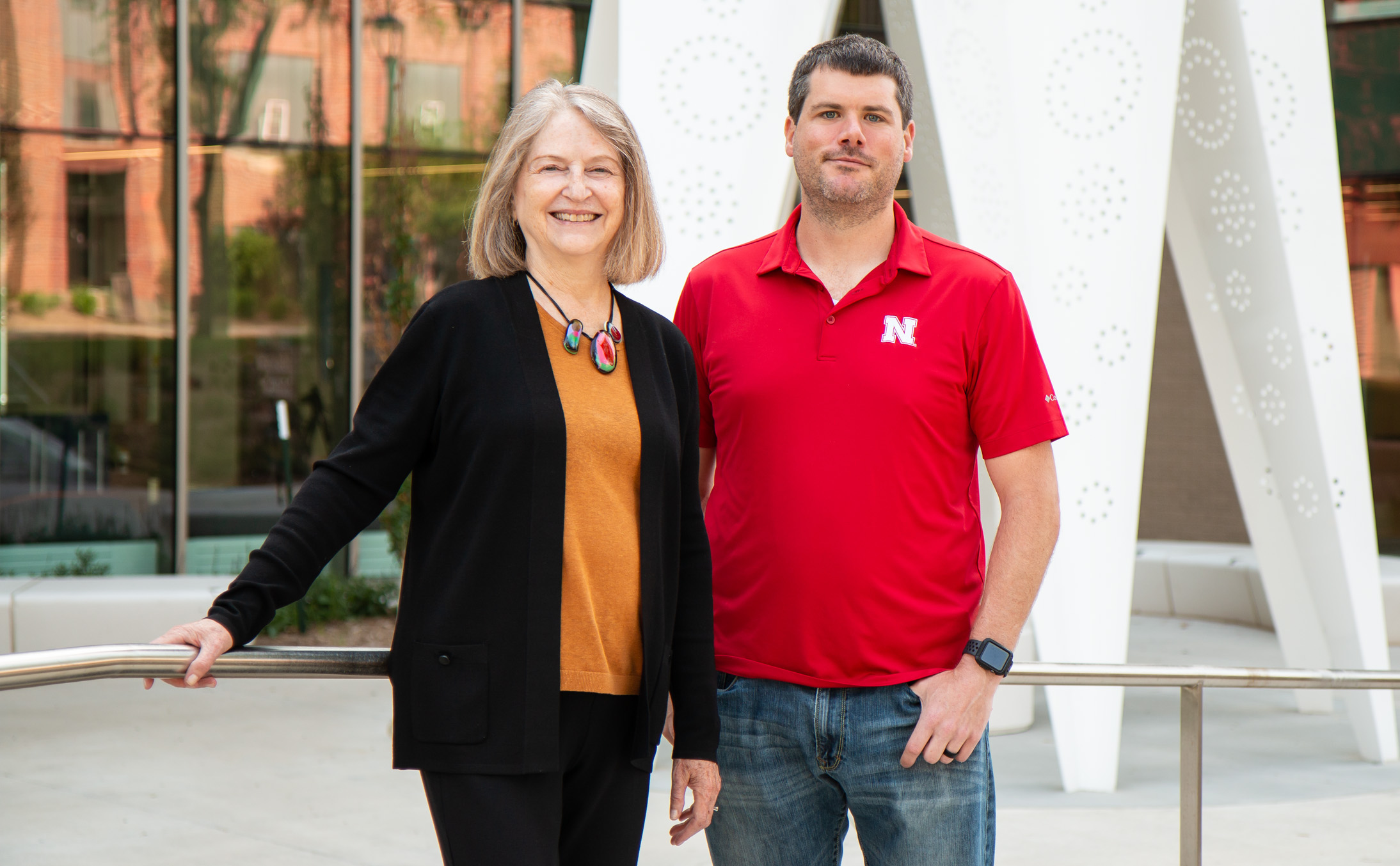
‘Homegrown’ training program addresses need for rural mental health professionals
08 Jun 2023 By Chuck Green, CYFS
For small towns scattered throughout Nebraska, mental health professionals are hard to come by. Recruiting and retaining such professionals is crucial to ensuring these rural populations have access to quality mental health care.
Because mental health trainees are more likely to stay and work in the rural communities where they live, Beth Doll, professor of educational psychology, and Matthew Gormley, associate professor of educational psychology are leading a virtual training program that can be accessible to anyone interested in a career in school psychology, no matter where they reside.
The Prairie Nebraska project is addressing the state’s shortage of mental health professionals by training 10 rural Nebraska residents using a “grow-your-own” program leading to state certification in school psychology.
Nine participants currently work as educators in rural schools and are securing additional training to transition into school psychology; one has earned their Bachelor of Arts, but is working outside of schools.
“The best way to find someone to train for a rural position is to find someone who wants to stay in the rural districts,” Doll said. “Otherwise, small towns can end up being springboards to opportunities in Omaha, Lincoln, Grand Island or in other states.”
Funded by a grant from the Behavioral Health Education Center of Nebraska within the University of Nebraska Medical Center, Prairie Nebraska will pay trainees’ tuition and fees, and will provide a small stipend for books. The grant also supports a graduate assistant liaison to ensure trainees’ access to all program resources.
The training program spreads the two-year Educational Psychology program across three years to facilitate already-working participants. Participants began taking courses in May 2023 and will take two courses split over each semester, one course at a time.
After finishing their required coursework in December 2025, trainees will complete an internship as a school psychologist in conjunction with school districts and education service units (ESUs) across the state.
Participants will then have earned an Educational Specialist degree in school psychology, and will qualify for a Nebraska Department of Education school psychology certificate. Graduates will be prepared to work effectively in interdisciplinary teams with school, community- and clinic-based mental health professionals.
Soon after Doll and Gormley received funding in late January, they reached out to contacts at various organizations, school districts and ESUs throughout the state to recruit applicants. They emphasized reaching out to Nebraska tribal communities, and communities with several residents for whom English is a second language.
Within a few days, they had about 100 inquiries.
“We’re providing an avenue to a school psychologist career for people who want to remain in their community,” Gormley said. “We’re helping train those who will stay and serve children of Nebraska in a way someone moving in from elsewhere wouldn’t be able to. A model like this holds a lot of promise and could be replicated to serve other communities anywhere.”
Doll has experience with this type of innovative training program. When she was a graduate student at the University of Kentucky in the 1980s, she worked with about a dozen rural, eastern Kentucky residents in a similar training program. With no internet at the time, participants met two Saturdays a month, then completed internships in nearby rural communities.
Apparently, the program worked well.
“I was back in Kentucky 15 years ago doing a workshop, and the students from that first program were still living in rural Kentucky working as school psychologists,” Doll said.
She saw similar success in a program she spearheaded in Colorado.
“This type of training creates a far more stable cohort of practitioners who want to stick around,” Doll said. “We’ve already gotten ‘thank you’ notes from several administrators who say they are more optimistic about filling their unfilled positions.”
Learn more about this project in the CYFS Research Network. This project aligns with the UNL Grand Challenge of early childhood education and development, and health equity.
College of Education and Human Sciences
Educational Psychology
Comprehensive Health & Well-Being